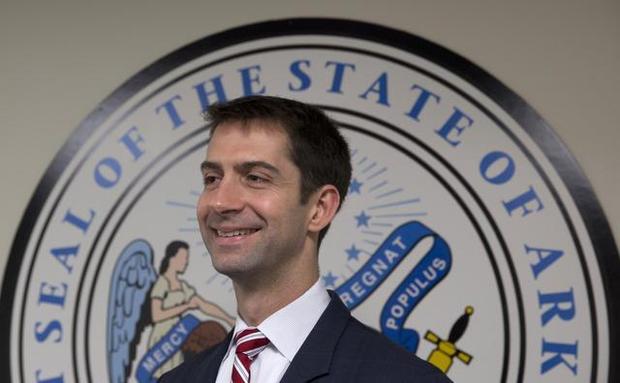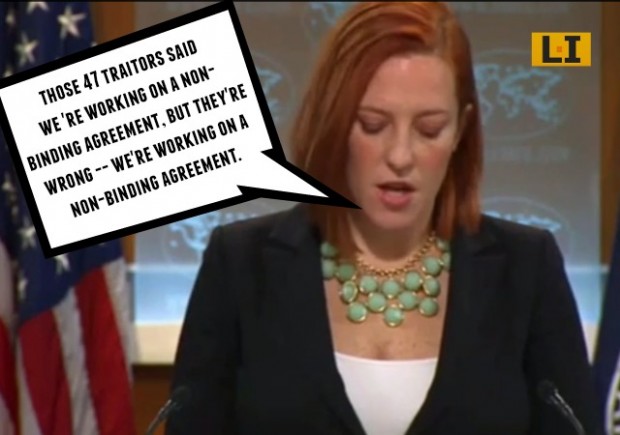We Know Something that most Americans Don’t — How I became a thought-criminal
This morning I received an email from Piotr Jankowski, managing editor of a Polish-language news website in Warsaw, telling me about an article they had just posted about me, my work, and my recent arrest at GMU by the politically correct campus police. The article was titled, Persecuted: in USSR for anti-communism, in USA for anti-Islamism.
Surfing their site, it didn’t take long to discover close to a dozen People’s Cube images and parodies by me and other Cubists from several years back, translated into Polish.
Since my grandfather was Polish, we had a Polish dictionary and a language manual in the family library. Polish is also close enough to my native Russian and Ukrainian, so with some practice I was able to read Polish magazines, which were more interesting than the Soviet ones.
As a kid, I loved the Polish satirical magazine Szpilki. It wasn’t widely available and their cartoons were often a lot more sexually charged than those in the Soviet print media, so my parents tried to keep them out of my sight. But seeing just one issue was enough to make me wonder why such things didn’t exist in the Soviet Union. It was possibly then that I first experienced adult thoughts about the existence of censorship. Seeing those magazines today wouldn’t probably impress me that much, but at the time they turned me into a thought-criminal. I realized that a world without censorship was more fun to live in.
Granted, Poland was a reluctant Soviet satellite with heavily censored press. And yet Polish movies and books seemed more honest and revealing in just about anything, from sex to politics. Apparently the Poles enjoyed a little less censorship and a little more freedom that we in the USSR did. It was logical to conclude that if a little less censorship meant a little more fun, a world without any censorship whatsoever would be a blast. And that world existed just west of Poland – in Europe, America, and the rest of what we call Western societies.
Ever since I imagined a world without censorship, I wanted to live in it. My own country began to feel less like the Motherland and more like an obstacle to freedom. As a teenager, whenever the Motherland’s embrace felt especially stifling and cold, I stayed warm thinking about parts of the world where people were free. I imagined I was one of them and it made me felt better. These people could speak their mind without the fear of being overheard. They could write and read books, make and watch movies, play and listen to the music without government’s permission. They gave me hope.
The sounds of the Beatles and other rock and roll music of the 1970s also helped. Turning on the tape recorder provided an instant immersion into that free world, a temporary escape from the stuffy Soviet reality. I believe that was a common experience for many young people of the Eastern Bloc. Owning an overpriced pair of blue jeans and listening to Western music went way beyond mere aesthetics; it was a non-verbal expression of our longing for freedom and an analgesic relief from the daily ideological bullying and brainwashing by the Communist regime.
It felt as though all those uncensored cartoons, music, and blue fade-out apparel were made especially for us. Communist propagandists agreed, telling us that all those “Western things” were masterminded by capitalist propagandists with the sole purpose of subverting the Soviet youth and weakening our communist resolve. We laughed at their paranoia, and yet the feeling of some secret messaging addressed to us was inescapable. Living in a totalitarian society will do that to you.
Everything the Communists did had a special political purpose, and they projected the same on their “capitalist adversaries,” claiming that all those “Western things” were part of a clandestine anti-Soviet operation. Later it came almost as a revelation to many Soviets that it wasn’t so. The superior consumer goods were the natural outcome of the capitalist economy, the uncensored art was the outcome of freedom, and rock and roll was a scream of joy that resulted from it. Whatever political messaging the Soviets attached to those things would have most likely surprised their creators.
As for me, I just wanted to experience a world where things were appreciated merely for their beauty, without any political weight clinging to them after they’d been dragged through the garbage of false totalitarian narratives.
Then I finally came to live in the U.S. and discovered a country chained by political correctness, which has become America’s new zeitgeist. Censorship came not as much from the government as from the media denouncements, which were then universally repeated by the mindless adepts of “progressivism.” Wherever I look I see a never-ending buildup of false narratives in an increasingly unfree society, where few things remain to be enjoyed for their beauty without the political ball and chain attached to them. One can’t even buy a chicken sandwich or watch a TV show, let alone read the news, without thinking about political messaging, symbolism, or ulterior motives.
The perpetrator is, once again, leftist ideology. It may not be a replica of the Soviet ideology, but it is nonetheless aligned with the general delusional idea of a world-wide socialist Utopia achieved through a totalitarian rule of “benevolent” elites. And now the totalitarian leftists are teaming up with the totalitarian Islamists. The censorship in Western societies has redoubled since Islam came into play. Apparently the leftists are hoping that Islamic supremacism will quietly go away once it helps them to conquer the world. That is, of course, yet another dangerous delusion.
I hate politics as much as a soldier hates the war but continues to fight because it’s the only way to victory. I’d rather live my life enjoying beautiful things without any politics attached, but today that seems like an impossible dream. The alternative to fighting is a surrender to the stifling totalitarianism and censorship, which will be a lot worse than going back to the Soviet days. The West’s surrender to the leftist agenda means that there will be no other parts of the world left to give us the hope of freedom. Nowhere to smuggle uncensored books, tapes, or cartoons from. Nowhere to run to.
This is why I do what I do. And this is what also drives the people in the far-away Warsaw to do what they do, including the translation of the People’s Cube satires into Polish.
Having grown up in an unfree world, we know something that most Americans don’t.
EDITORS NOTE: This column was first published in the alt-media FrontPage Magazine.



